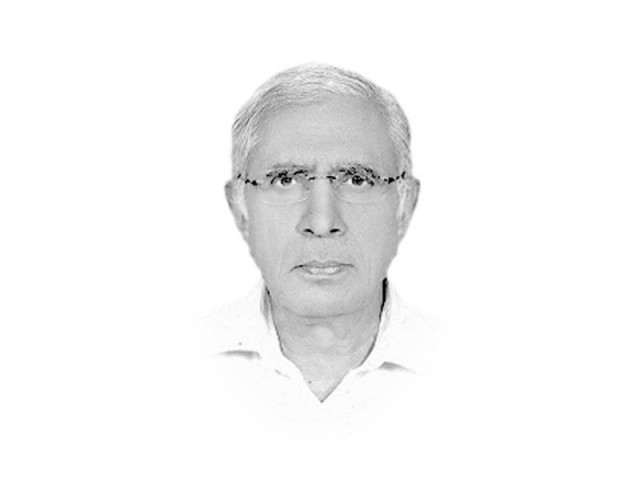Asia leads global education
Pakistan still groping in the dark trying to find out what is wrong with education system

The writer served as executive editor of The Express Tribune from 2009 to 2014
According to Chris Parr, digital and communication editor, Times Higher Education, the 21st century is the “Asian century” and the massive economic power has led to huge investment in universities, resulting in their consistent improvement in global university rankings year after year. Comparative investment in the West is often said to be dwarfed.
In an article (This is the Asian century. These schools are leading it) published on June 20, 2016 in the Regional Agenda weekly of World Economic Forum, the author contends that though the implications of this changing face of higher education are too obvious, the trends are now so familiar that grasping the importance of this shift, the power of this phenomenon, can be tough. Some of the statistics, however, are remarkable, the author further contends.
For example, China is now said to be responsible for more than 20% of the world’s scientific publications. It has just overtaken the US as home to the most researchers in the world.
China is huge, still quality-wise the country is said to be catching up with quantity and people are said to be taking notice. And it isn’t just China.
South Korea is now one of the most research-intensive economies in the world, according to a UNESCO report, while Singapore has just claimed the top two positions in the 2016 Times Higher Education Asia University Rankings.
The rankings cover the continent of Asia — from Turkey in the west to Japan in the east. What’s striking about the top 10, therefore, is the extent to which the east Asia has trumped the west.
China boasts 39 institutions in the top 200 of the world ranking institutes, the same as Japan, with South Korea third with 24. India has just 16 — fewer than Taiwan (24). Pakistan has only two world-ranking universities — Quaid-i-Azam University and National University of Science and Technology).
The rankings are the only global performance tables that judge research-intensive universities across all their core missions: teaching, research, knowledge transfer and international outlook. According to Chris Parr, one can explore the methodology adopted for estimating the rankings in more detail on the THE Asia Rankings site.
So what is it that pushes some countries up the list? To what extent can governments boost the performance of their higher education systems when benchmarked against their peers? Answering the two questions, author Chris Parr says: One common characteristic of the leading nations in Asian higher education is the existence of government initiatives specifically targeted at the university sector. That is where we have failed miserably. Successive governments in Pakistan did not take the necessary initiatives at targeting the university sector, neither did they allocate adequate funds.
Last year saw the Chinese government launch a new excellence initiative, dubbed “World Class 2.0”, which aims to establish six universities in the upper echelons of global institutions by 2020. South Korea’s “Brain Korea 21” and “World Class University” initiatives aim to develop homegrown academic talent and boost its universities’ global performance, while Taiwan, Hong Kong, Singapore and Japan all have government initiatives explicitly targeted at boosting the performance of its higher education sector.
Ka-Ho Mok, Vice-President of Lingnan University in Hong Kong, provides a useful overview of these initiatives here. “Investment in higher education, research and knowledge transfer is vital for sustainable economic growth,” he writes. It seems that many across the continent of Asia agree.
Published in The Express Tribune, March 23rd, 2019.
Like Opinion & Editorial on Facebook, follow @ETOpEd on Twitter to receive all updates on all our daily pieces.














COMMENTS
Comments are moderated and generally will be posted if they are on-topic and not abusive.
For more information, please see our Comments FAQ